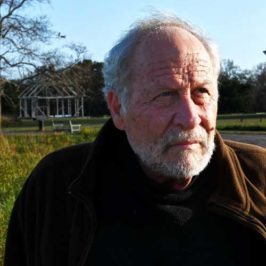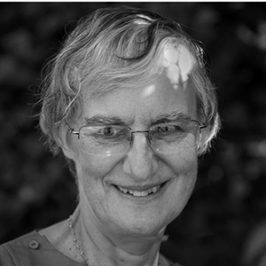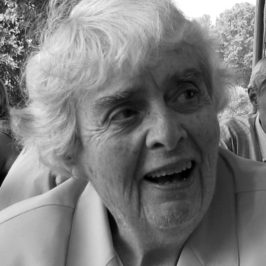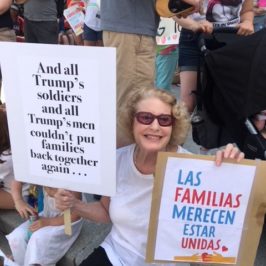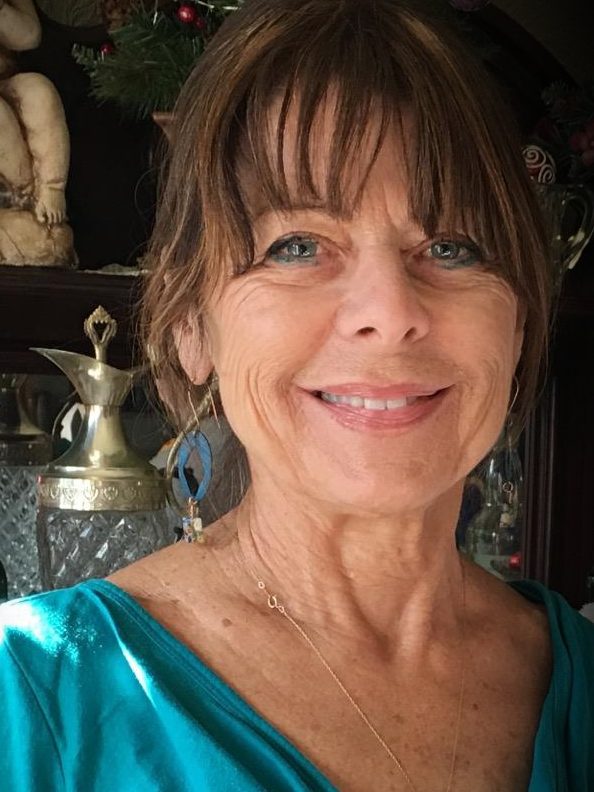
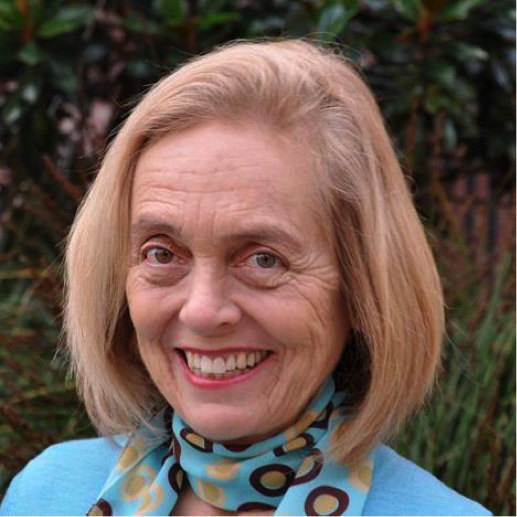
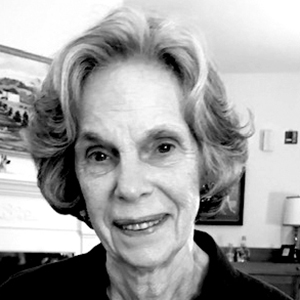
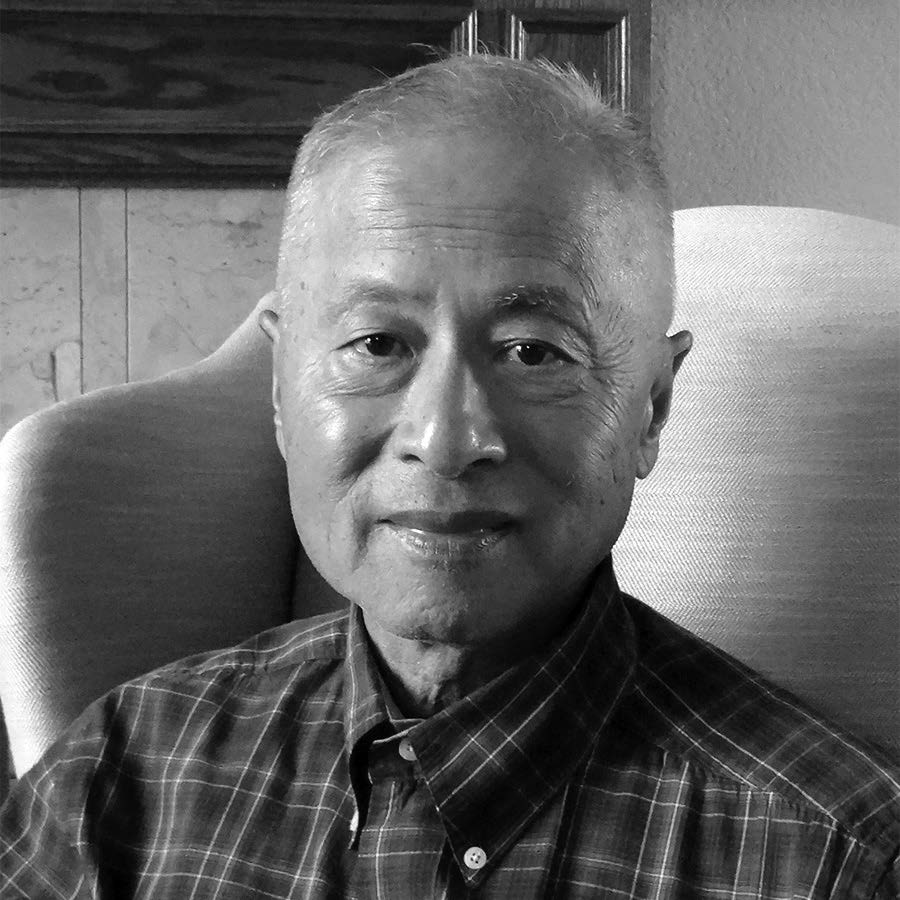
Whether we’re burning them or building them, Margaret Lunden-Molinari, Gail Newman, Betty Howard and Roy Cheng Tsung understand the power and importance of bridges.
7 minutes
TRANSCRIPT
On this episode, bridges.
Margaret Lunden-Molinari said a tea leaf reader once told her that he could not see anything but paper in her future. She was a teacher at the time, surrounded by papers waiting to be graded. “Now,” she said, “I’m surrounded by my own paper clutter, ‘my own ill-formed offspring of my feeble brain.’” Here’s her poem “Going Off the Bridge.”
My mother said “I’m going off the bridge”
Then she ran out the door
We watched through the parlor window as she hurried
down the street
My sister said not to worry
“She always says that”
And dumped out her doll’s accessories
Precious things she seldom let me touch
We played for a while
Then we went upstairs to my mother’s bedroom
Where we opened her dresser drawers and pulled out her
scented slips and nightgowns
We opened her jewelry case too
And examined each piece
Spreading out the necklaces and earrings
And the brooches that stabbed your fingers if you weren’t careful
All over her bed
Then my sister put some of the jewelry on me
And then on herself
We gazed at our gypsy selves in my mother’s mirror
But it was getting dark and harder to see
We didn’t put any lights on
We never did
Until we heard the front door open and close
And then we ran down the stairs
Dropping diamonds and pearls along the way.
Margaret Lunden-Molinari’s “Going Off the Bridge” from Passager Issue 67.
Some people wear bridges in their mouths, wire frames with false teeth in various places. Gail Newman said that when her 95-year-old mother had a stroke, she helped her prepare for bed and witnessed her nightly routine, which included removing her bridge and placing it in a glass of water. She said, “The image of the two of us in the mirror and the realization that we were growing old together inspired “The Bridge.”
When she takes out the bridge,
exposing large gaps at the gums,
my mother suddenly is not my mother
minutes ago done up in an angora crewneck,
fresh water pearls at the throat.
She leans over the sink,
holding onto the ledge with gnarled fingers,
breasts sagging under a white towel
as I submerge a washcloth
into hot water and glide
a bar of ivory soap across her back.
In the mirror two
old women move slowly
one behind the other,
both bodies grown
into abundance, heavy with years.
I count them: 96, 60, 45, 20,
until we are both girls again, big-eyed,
bows in our hair. My mother takes
off her glasses, so her face is a soft blur,
our hands now side-by-side,
mine dry, mottled as a leaf,
hers like paper, transparent blue.
Who can say which is the elder?
It’s quiet in the bathroom, splash
of water on porcelain bowl.
Gail Newman’s poem “The Bridge” from Passager Issue 65.
Bridge is also a game. Here’s Betty Ann Howard’s poem from Passager Issue 67 “Politics at the Bridge Table.”
There she sits with her point of view
Poised upon her shoulder
Like a furious bird, wings spread,
Keen to attack, to go for the eyes
Should someone see the world
In a way that offends her.
No falconer would dare control
The swoop of her opinion.
Diving down, it scatters the cards,
Upturns the drinks, then turns
Away, returns and smoothes its pinions,
While she, again, takes up her hand.
“Politics at the Bridge Table,” Betty Ann Howard.
Roy Cheng Tsung was born in New York. His father was a Chinese diplomat. And when Mao Zedong came to power after WWII, Roy’s father wanted to be a part of the New China and so moved the family back to their homeland. Here’s a short excerpt from Roy’s book Beyond Lowu Bridge, the physical connector between Hong Kong and Communist China, and the metaphorical bridge between the free world and the oppression of Mao’s China.
The bridge was not long. It was a simple structure of wood and concrete with railway tracks. A white demarcation line ran across the middle. There were no modern buildings on the Chinese side.
The land looked barren and rural. Behind the Chinese border guards, a five-star red flag fluttered from the top of its tall mast.
We were promptly marched off to a small outpost structure near the checkpoint and lined up against the wall. A grim British officer with dark glasses came out and looked us over. Across Lowu Bridge stood solemn Chinese guards in olive green. One of them was holding a large automatic weapon with holes on the barrel.
I reluctantly followed my mother across the bridge. Two People’s Liberation Army guards came forward. I heard a voice addressing us over a loudspeaker. “Welcome countrymen!” it said, followed by a song that began with “East is red, the sun rises.” My mother surrendered her passport. It had a red diplomatic cover and bore the Chinese Nationalist Government emblem.
I looked over my shoulder and glanced back at the other end of the bridge. With fists on hips, the grim British officer stood beneath the Union Jack, observing us through his dark glasses. Behind him, the armed men remained at attention. I looked for the officer with tobacco-stained teeth. For a second, there was a faint smile on his dark face when our eyes met. As I stood on the small wooden bridge, I stole one last glimpse of the outside world.
An excerpt from Roy Cheng Tsung’s memoir Beyond Lowu Bridge.
To buy Beyond Lowu Bridge or to subscribe to or learn more about Passager and its commitment to writers over 50, go to passagerbooks.com. You can download Burning Bright from Spotify, Apple and Google Podcasts and various other podcast apps.
For Kendra, Mary, Christine, Rosanne, and the rest of the Passager staff, I’m Jon Shorr.

